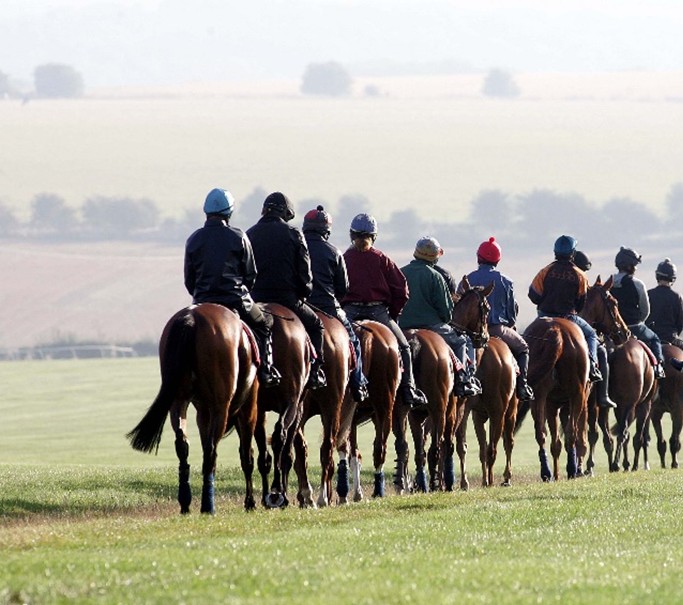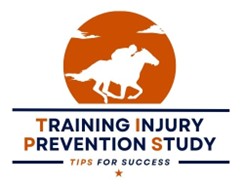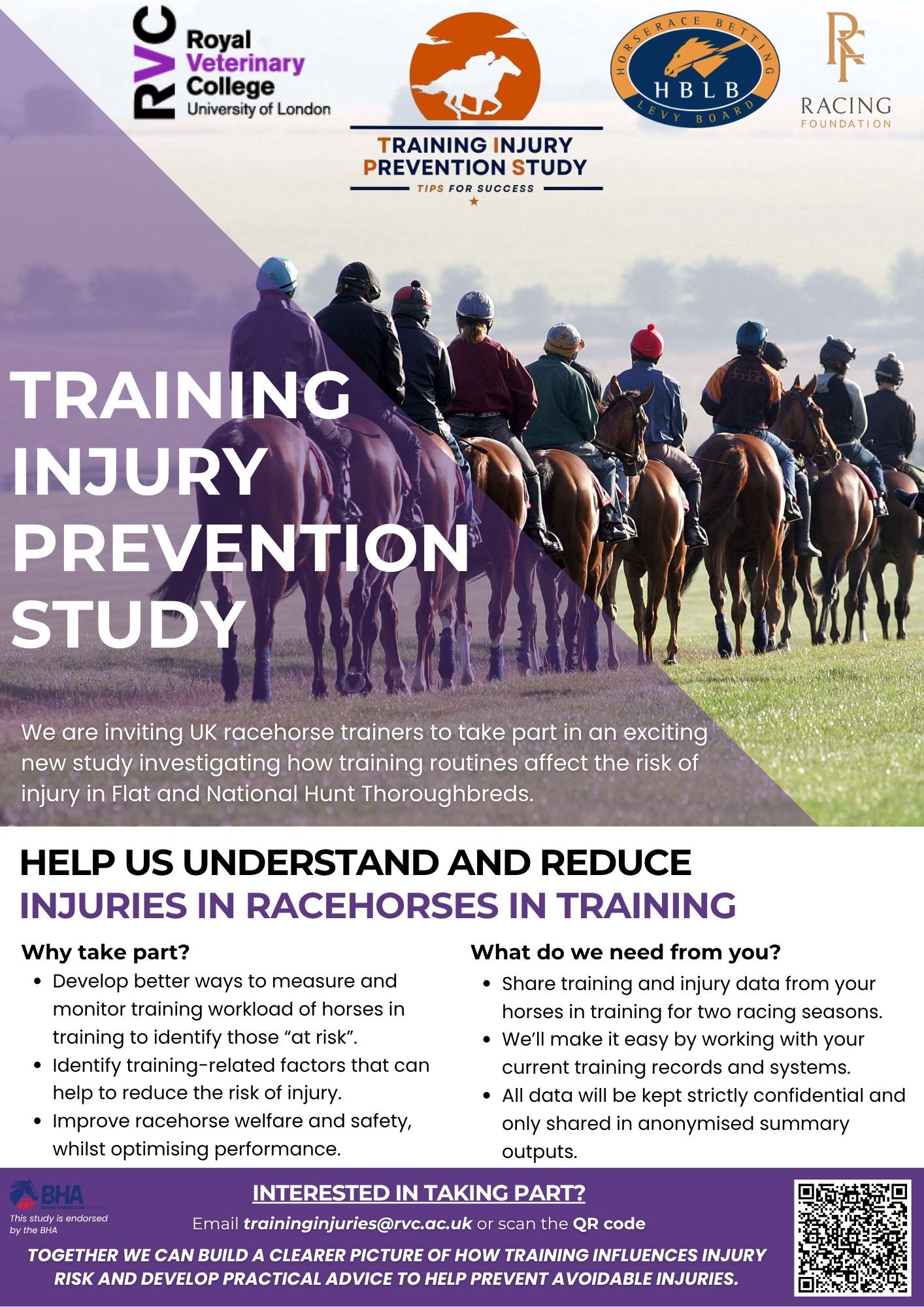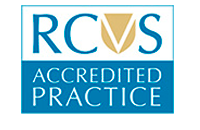24 hour contact: 01707 666297
RVC launches major study to identify key risk factors for racehorse training injuries
Researchers from the Royal Veterinary College (RVC) have launched a major new study to improve the safety and welfare of Thoroughbred racehorses in training. The project will provide vital evidence to help reduce the risk of musculoskeletal injury, one of the leading causes of morbidity and mortality in racehorses worldwide.

Despite significant advances in understanding of injuries that occur in horses on a racecourse, there is currently limited information on injuries that happen during training. By addressing this knowledge gap, this study will identify modifiable risk factors and inform practical, evidence-based recommendations for trainers and equine vets. The findings will enable data-driven decisions to help reduce injuries, enhance welfare outcomes and strengthen public confidence in the sport.
Funded by the Horserace Betting Levy Board and the Racing Foundation, and endorsed by the British Horseracing Authority, the Training Injury Prevention Study represents a much-needed large-scale investigation in Great Britain which focuses on injuries sustained during training rather than on the racecourse. The research will directly support the Horse Welfare Board’s Best Possible Safety strategy, contributing to long-term improvements in racehorse welfare and industry sustainability.
Over a three-year period, the RVC-led research team will conduct prospective cohort studies in flat and national hunt (jump) Thoroughbreds in training. By doing so, the researchers will estimate the incidence of the most common types of musculoskeletal injuries in racehorses in training, including fracture and tendon and joint injuries; develop novel measures of training workload that can be used to monitor training over time; and investigate how training regimes can be optimised to reduce the risk of exercise-induced injury. Additionally, the study will trial the use of wearable technology to establish its practical usefulness for large-scale application in measuring horses’ training workload.

Professor Kristien Verheyen, Professor of Veterinary Clinical Epidemiology at the RVC, said:
“This large-scale study will fill key knowledge gaps on injury occurrence in racehorses in training. Its findings will directly impact racehorse welfare by identifying opportunities for intervention based on ‘best practice’ in current training regimens to reduce the likelihood of injury.”
Racehorse trainers interested in taking part in this study are encouraged to register their no obligation express of interest, here.
For more information about the Training Injury Prevention Study, please visit: https://www.rvc.ac.uk/research/projects/training-injury-prevention-study.
Notes to Editors
For media enquiries, please contact:
- rvc@plmr.co.uk
- Press Line: 0800 368 9520
About the RVC
- The Royal Veterinary College (RVC) is the UK's largest and longest established independent veterinary school and is a Member Institution of the University of London.
- It is one of the few veterinary schools in the world that hold accreditations from the RCVS in the UK (with associated recognition from the AVBC for Australasia, the VCI for Ireland and the SAVC for South Africa), the EAEVE in the EU, and AVMA in the USA and Canada.
- The RVC is ranked as the top veterinary school in the world in the QS World University Rankings by subject, 2025.
- The RVC offers undergraduate and postgraduate programmes in veterinary medicine, veterinary nursing and biological sciences.
- The RVC is a research-led institution, with 88% of its research rated as internationally excellent or world class in the Research Excellence Framework 2021.
- The RVC provides animal owners and the veterinary profession with access to expert veterinary care and advice through its teaching hospitals and first opinion practices in London and Hertfordshire.


